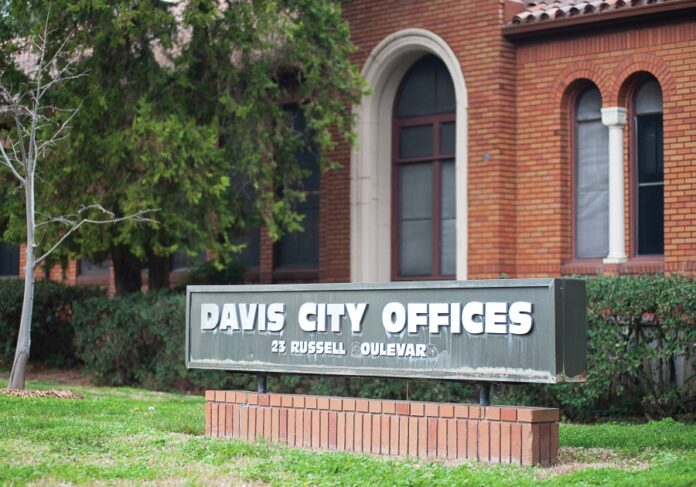Neighborhood Court seeks input from community for second rounds of grants, expansion
Over the past couple of weeks, the Yolo County District Attorney’s Office and the Health and Human Services Agency have been hosting a series of community engagement meetings to attain public feedback regarding grant proposal development for the second round of Proposition 47 and Edward Byrne Memorial Justice Assistance Grant funding. The funding would expand the Steps to Success and Neighborhood Court programs, both of which are restorative justice programs which aim to address root causes of criminal activity.
Neighborhood Court is a voluntary program that invites eligible offenders to participate in a conference with a three-person panel that decides what steps the offender should take to resolve their offense. After completing the steps, the offender’s record is cleared.
Nicole Kirkaldy, the Neighborhood Court paralegal, explained this philosophy.
“[Neighborhood Court] looks at addressing crime as not just a specific offense but looking at the harms it creates,” Kirkaldy said. “It looks at how to best address these harms, how to make things right as much as possible, what needs are created and how to meet those needs.”
For example, a student offender with an alcohol-related offense may be referred to Student Health and Counseling Services. An offender who was disruptive at a bar may need to write letters of apology to the bar-owner, their family and themself.
Yadira Paiz, a 2018 UC Davis alumna who began volunteering with Woodland’s Neighborhood Court as a student and is now an employment specialist and case manager for Steps to Success, shared her thoughts about this approach.
“The person matters as well — not just the community, but them too — [and] how you can heal in the process,” Paiz said. “I think that’s really a concept that I haven’t heard of, but it really works.”
Neighborhood Court began in 2013 and expanded in 2015 to cover a growing variety of offense types, a broadened criminal history eligibility and a wider region of Yolo County, including West Sacramento and Woodland. The second round of Justice Assistance Grant funding would support Neighborhood Court’s operation and continued expansion, as the DA’s office looks for ways to include more people who would benefit from the program.
“We’re finding that this process has benefits to a pretty wide variety of participants, some who are not first-time offenders,” Kirkaldy said. “They might have a bit more of a criminal history; maybe they have a higher level offense than we’ve seen in the past, or they might just need some additional resources and support that’s not necessarily available through the core program.”
As Neighborhood Court currently operates, most eligible offenders are responsible for specified minor misdemeanors, although individuals can qualify on a case-by-case basis for other offenses. There are also restrictions based on criminal history, but Neighborhood Court is looking to expand the program to more individuals who are not first-time offenders.
“We’re looking to see how we can reach a broader population and better support the needs of that population within that expansion so that they’re able to benefit and be successful through this program,” Kirkaldy said.
Along with Neighborhood Court, the parallel program Steps to Success specifically addresses the needs of individuals with substance misuse and mental health challenges. Individuals can opt into intensive case management that offers therapy, medication support, housing assistance and employment guidance.
Steps to Success was made possible through funding from Proposition 47 — the Reduced Penalties for Some Crimes Initiative — which passed in 2014. Health and Human Services Agency led the application, along with probation, public defenders and the DA’s office but contracts most services out to partners such as CommuniCare Health Centers, Empower Yolo and Legal Services for California.
This next round of Proposition 47 funding, called Cohort 2 — for which the DA’s office and HHSA are applying — will more directly address the homelessness that many Steps to Success clients experience. Ian Evans, an alcohol and drug administrator and forensic and homeless services manager with HHSA, said that Cohort 2 will support a program similar to the current one but with changes to ensure both the originally targeted population and individuals experiencing homelessness are supported. Although Steps to Success wasn’t intended to be a homeless-driven program, about 45 percent of participants are either homeless or have recently experienced homelessness, according to Evans.
“The idea would be to utilize this [Cohort 2] funding to help support the individuals that are from that target population that are also homeless so we can have the Steps to Success program continue with the target population it was intended for, and also for these individuals living homeless with the new funding,” Evans said.
The DA’s office and HHSA have sought community input for both program expansion proposals through community discussions in Davis, West Sacramento, Winters and Woodland. These discussions were livestreamed and are available to watch on Facebook.
Additional engagement efforts include a consumer input session at the Fourth and Hope shelter in Woodland and a meeting with the Yolo County Homeless and Poverty Action Coalition in order to determine ways to make the grant’s service model as impactful as possible.
Community members with questions, comments and ideas about the programs can email prop47@yolocounty.org.
“We’ve been getting a lot of email comments and questions in from folks that have been giving some good guidance and initial ideas about how we can structure the program,” Evans said.
Some ideas, for example, had to do with securing housing to support individuals in Steps to Success, including the possibility of landlord incentives.
This engagement process helps to inform residents about Steps to Success and Neighborhood Court.
“A couple of the comments at the first session were honestly just thanking us for coming out and sharing the information because people had no idea that the current Neighborhood Court program or the current Steps to Success program [were] happening and what [they] entailed in Yolo,” Evans said.
Written by: Anne Fey — city@theaggie.org





